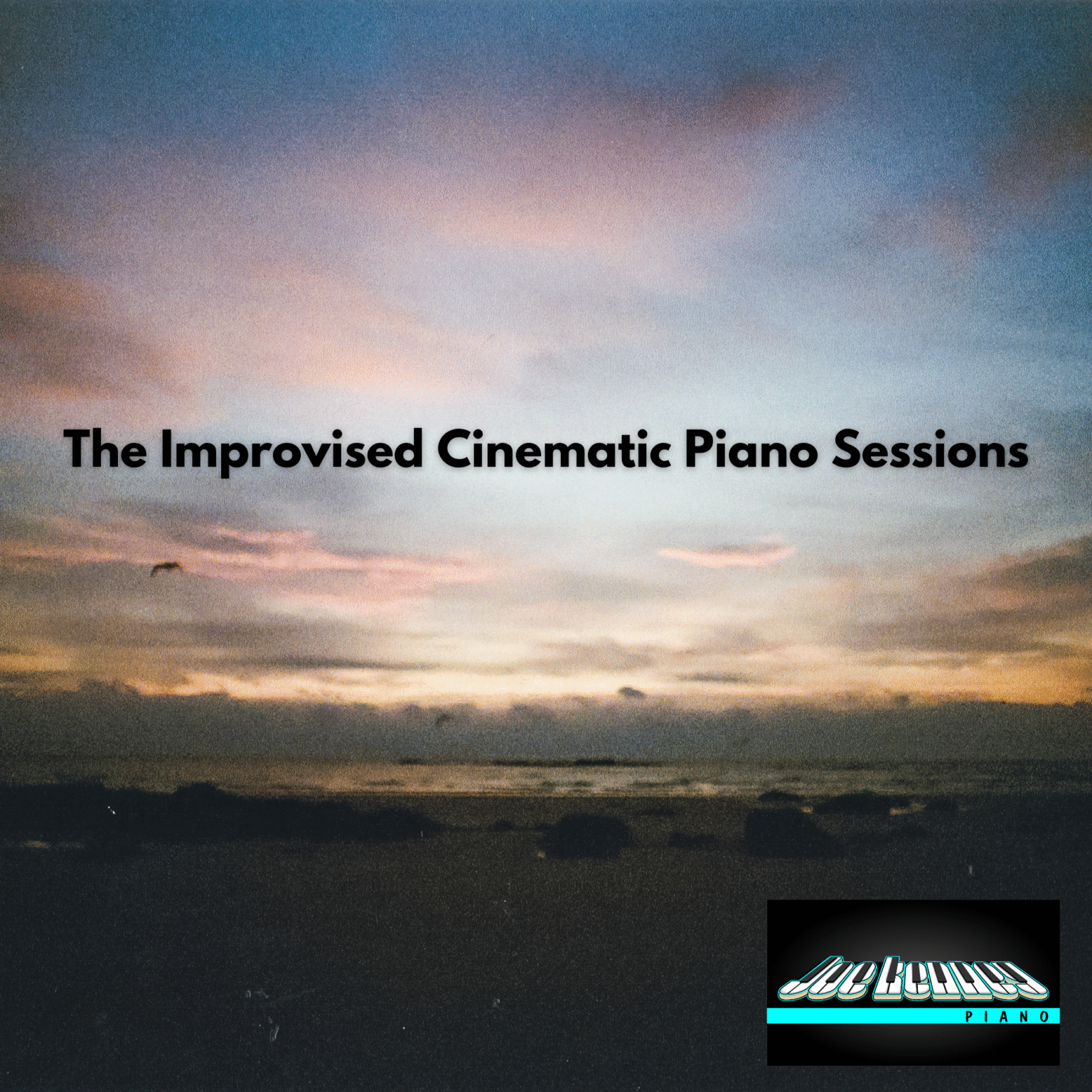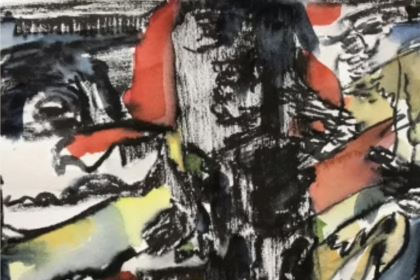Joe Kenney has never been an artist to take the predictable route, and with his sixth album, The Improvised Cinematic Piano Sessions, released on September 19th, 2025, he elevates his artistry to new heights. A graduate of West Chester University with a degree in piano performance, Kenney has consistently built bridges between genres—whether through classical, jazz fusion, rock, or soul. This project, however, strips away every layer of safety net. Twelve tracks, all improvised in single takes, stand as a bold experiment in vulnerability, a sonic diary written in the moment. The result is an album that feels alive, like a conversation between pianist and piano, full of raw edges, breathtaking swells, and quiet spaces where silence itself feels like part of the composition.
The album opens with “Coming to Terms,” a reflective yet powerful piece that establishes the spirit of the project. You can almost hear the weight of the title in Kenney’s playing—hesitant notes stretching out into fuller, surging chords, as though acceptance is being negotiated in real time. From there, “Unraveling” dives deeper into turbulence, with cascading runs and uneven rhythms that capture the fragility of emotional disintegration. Listening to these two opening pieces side by side feels like reading the prologue of a novel written in music: first, the search for peace, then the honest admission of inner chaos.
By the time “Majestic Uncertainty” arrives, the full breadth of Kenney’s improvisational prowess is on display. Here, restraint and grandeur exist side by side. The track’s sweeping progressions and lingering pauses mirror the contradictions of human existence—hope and doubt, beauty and instability. That theme continues into “Of Dawning and Longing,” a piece that feels like sunrise over a desolate horizon. There’s a fragile optimism in its phrasing, as though Kenney is sketching out the ache of desire while acknowledging the possibility of renewal. The improvisation feels almost cinematic, evoking images of empty city streets slowly filling with light.
The middle of the album, particularly “Upstream” and “Striving,” pushes the energy forward. “Upstream” carries a restless momentum, each note striving against the current, while “Striving” builds into something nearly triumphant. Here, Kenney seems less interested in resolution and more in the act of persistence itself. These tracks underline the emotional variety of the record: it’s an album of meditative improvisations, and a journey that includes determination, movement, and even subtle defiance.
“Ascension” serves as a turning point, where the album begins to stretch toward transcendence. The playing here is luminous, almost liturgical, as though Kenney is channelling something beyond himself. That light is shattered, however, in “The Aftermath of Destruction,” one of the album’s most dramatic moments. Dark, heavy, and discordant, the piece plunges into grief and chaos before pulling itself back into fragile stability. It’s here that the cinematic quality of the project comes into full focus: each track feels like a scene in a film, and the listener, audience and participant are swept up in the unfolding story.
The final arc of the album begins with “Ambivalence” and “Romance in D Major.” The former feels suspended, its tentative phrases circling indecision, while the latter shifts into something lush and lyrical. “Romance in D Major” is perhaps the most traditional-sounding of the pieces, but its warmth feels well-earned after so much emotional turbulence. In “One Final Journey,” Kenney leans into nostalgia, with motifs that echo earlier tracks, as if looking back before closing the book. This prepares the listener for the aptly titled closer, “Resolution.” Ending on a meditative yet conclusive note, it ties the improvisational threads together without tying them too tightly, leaving space for interpretation and reflection.
What makes The Improvised Cinematic Piano Sessions remarkable is Kenney’s technical skill, undeniable mastery, and his willingness to surrender control. In abandoning rehearsed perfection, he allows emotion to lead, and the music resonates more deeply because of it. The imperfections become part of the beauty, reminding listeners that vulnerability and spontaneity are often more moving than polish. The cinematic dimension of the record is not in premeditated storytelling but in its ability to evoke imagery and emotion instinctively.

For long-time fans of Joe Kenney, this project marks a natural evolution of his artistry. His earlier works blended genres and showcased his versatility, but this album lays bare his essence as a pianist: instinctive, emotive, and unafraid to explore uncertainty. For new listeners, it offers an immediate entry point into a body of work that refuses to be boxed in. Each track, though improvised, feels purposeful, like it belongs exactly where it landed.
Ultimately, The Improvised Cinematic Piano Sessions is less a traditional album than a living document of a musician in dialogue with himself and his instrument. It’s raw, expansive, and deeply human—an invitation to sit with emotions as they come, to let them move through us without rushing to the end. By embracing imperfection, Joe Kenney has crafted one of his most honest and compelling works to date, a testament to the power of improvisation as a technique and philosophy. This is music for anyone willing to pause, listen, and let the piano tell a story only it could tell in the moment.
For more information, follow Joe Kenney:
Website – Facebook – Twitter – Soundcloud – Bandcamp – Instagram







